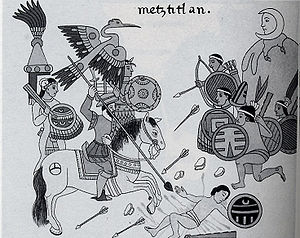
Back صدمة ثقافية Arabic Mədəniyyət şoku Azerbaijani Културен шок Bulgarian Kulturní šok Czech Kulturschock German Πολιτισμικό σοκ Greek Kultura ŝoko Esperanto Choque cultural Spanish Kultuurišokk Estonian Shock kultural Basque


Culture shock is an experience a person may have when one moves to a cultural environment which is different from one's own; it is also the personal disorientation a person may feel when experiencing an unfamiliar way of life due to immigration or a visit to a new country, a move between social environments, or simply transition to another type of life.[1] One of the most common causes of culture shock involves individuals in a foreign environment. Culture shock can be described as consisting of at least one of four distinct phases: honeymoon, negotiation, adjustment, and adaptation.
Common problems include: information overload, language barrier, generation gap, technology gap, skill interdependence, formulation dependency, homesickness (cultural), boredom (job dependency), ethnicity, race, skin color, response ability (cultural skill set).[2] There is no true way to entirely prevent culture shock, as individuals in any society are personally affected by cultural contrasts differently.[3]
Culture shock is experienced by students who participate in study abroad programs. Research considering the study abroad experiences states that in-country support for students may assist them in overcoming the challenges and phases of culture shock. As stated in a study by Young et al., the distress experienced by culture shock has long-lasting effects therefore, universities with well-rounded programs that support students throughout the study abroad program, including preparation and post-program assistance, can alleviate challenges posed by culture shock, allow for global development and assist with the transition back into the home culture.[4]
- ^ Macionis, John, and Linda Gerber. "Chapter 3 - Culture." Sociology. 7th edition ed. Toronto, ON: Pearson Canada Inc., 2010. 54. Print.
- ^ Pedersen, P. (1995). The Five Stages of Culture Shock: Critical Incidents Around the World. Contributions in Psychology, no. 25. Westport, Conn.: Greenwood Press. ISBN 978-0-313-03073-4. ISSN 0736-2714. LCCN 93-49711.
- ^ Barna, LaRay M. (1976), How Culture Shock Affects Communication, ERIC ED184909 NLA 5380387
- ^ Young, Jennifer T.; Natrajan-Tyagi, Rajeswari; Platt, Jason J. (2014). "Identity in Flux: Negotiating Identity While Studying Abroad". Journal of Experiential Education. 38 (2): 175–188. doi:10.1177/1053825914531920. ISSN 1053-8259. S2CID 145667333.
© MMXXIII Rich X Search. We shall prevail. All rights reserved. Rich X Search